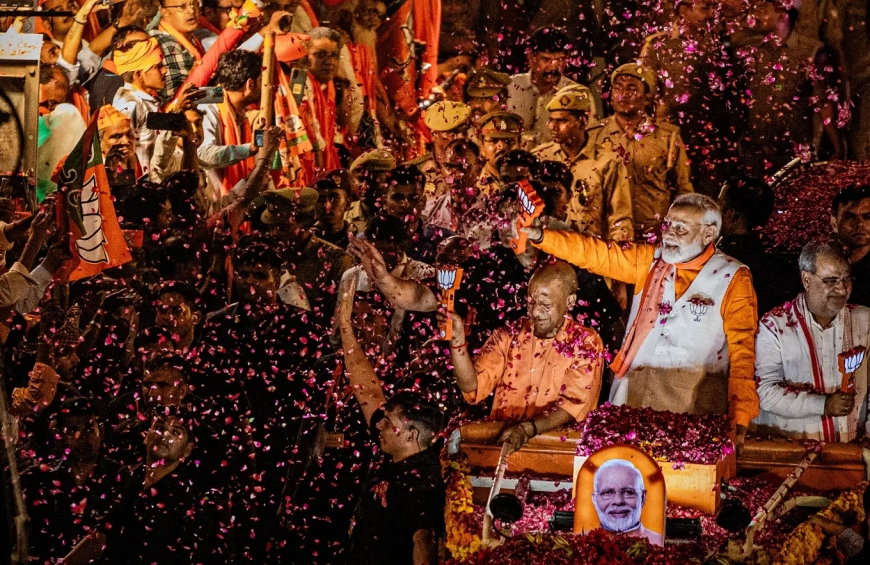Anti-Muslim Rhetoric Won't Propel India Forward
As the Indian parliamentary election draws to a close in early June, the ruling Bharatiya Janata Party (BJP) has intensified its rhetoric against the Muslim minority. This shift suggests doubts within the party about whether its record alone can secure voter confidence.

Modi’s Increasingly Divisive Campaign
Indian Prime Minister Narendra Modi, who is widely expected to secure a third term, has been focusing his campaign on anti-Muslim sentiment. Despite the BJP’s strong position, Modi's nervousness has become apparent as the seven-week election progresses. Instead of emphasizing his administration’s achievements, Modi has been targeting the 200 million Muslims in India, labeling them as "infiltrators" with "many children" at a recent rally. He also accused the opposition Congress Party of planning to redistribute Hindu savings to Muslims and representing Pakistan’s interests. A BJP campaign ad making similar claims was pulled by the election commission after complaints.
BJP’s Unexpected Focus
The BJP's reliance on religious polarization is surprising. While the party has historically used minority bashing to galvanize its Hindu base, it was anticipated that Modi would highlight infrastructure development and India’s recent lunar mission success in this election cycle. Modi’s ambitions are high, with the goal of increasing BJP seats from 303 to 370 and securing a supermajority with coalition partners, allowing for potential constitutional amendments.
Challenges and Opposition Strategies
Setting such lofty goals has its risks. Should the BJP fall short, it could be perceived as a sign of weakness by the opposition. Early phases of the election, which spans from mid-April to early June, have seen relatively low voter turnout, raising concerns within the BJP that complacency might keep their supporters away from the polls.
The opposition has also struggled to energize voters but has made some impact by focusing on issues like unemployment, inequality, and social justice. Despite India’s high economic growth rates, the benefits have not trickled down to the general population, with many university graduates struggling to find suitable jobs.
Criticisms and Doubts
After two terms, Modi is under pressure to deliver tangible results. While international observers may be swayed by his rhetoric about India’s rise, many Indians see a mixed reality. Modi has faced criticism for prioritizing spectacle over substance, and even some BJP supporters are beginning to doubt his narrative as their incomes stagnate.
The Way Forward
Despite these issues, Modi’s victory appears secure due to his broad and solid support base, with many voters idolizing him. However, it remains puzzling why the BJP leader feels the need to resort to divisive tactics against Muslims. Modi has pledged to transform India into a developed nation by its 100th independence anniversary in 2047. To achieve this, the government should focus on inclusive development rather than religious polarization. Such divisiveness will not advance India’s progress.













































